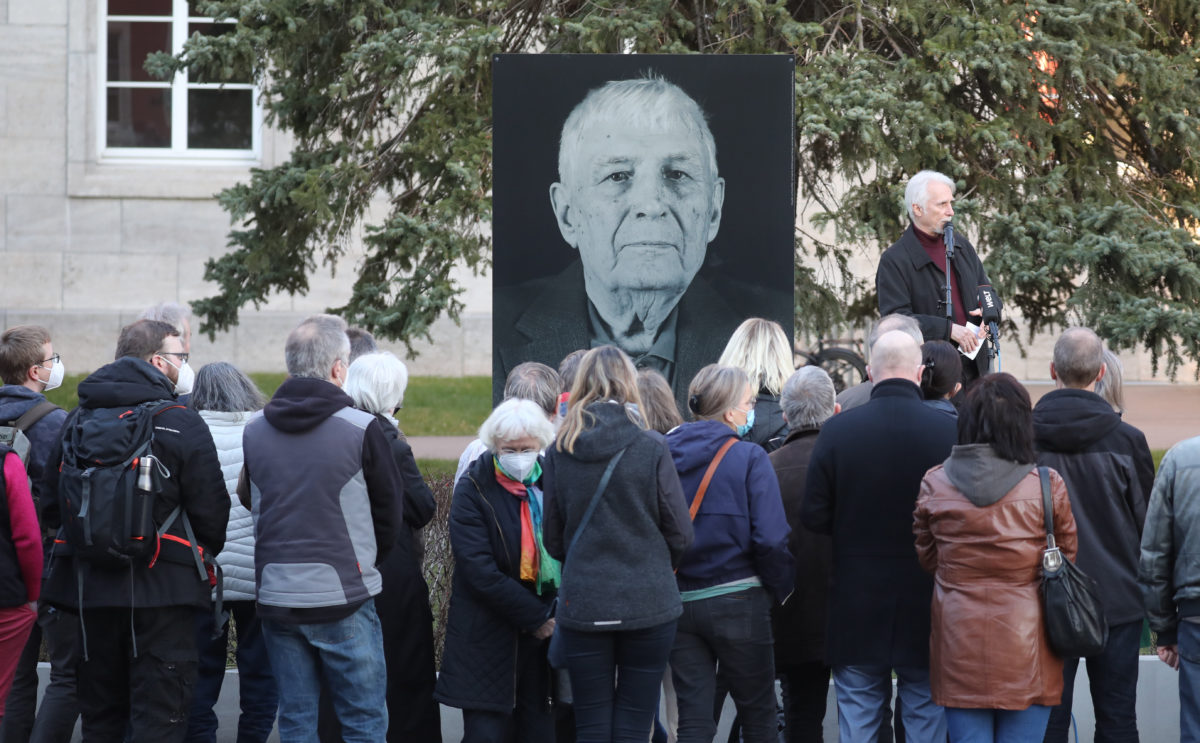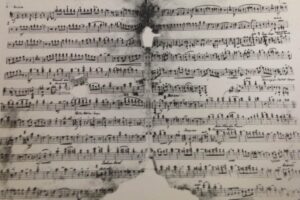Boris Romanchenko, 96, endured unimaginable horrors and survived man’s inhumanity in the Nazi concentration camps of Buchenwald, Peenemünde, Dora, and Bergen-Belsen, during World War II.
But on March 18, Romanchenko was killed in his home by a Russian strike on the Ukrainian city of Kharkiv.
The Buchenwald concentration camp memorial institute confirmed Romanchenko’s death in a series of tweets.
Romanchenko was vice president of the International Buchenwald-Dora Committee, dedicating his life to preserving and keeping alive the history of Nazi crimes.
The memorial added that they were “stunned” by Romanchenko’s death.
Romanchenko’s granddaughter, Yulia, told CNN that she “learned about the shelling of Saltivka residential district on March 18 from social networks. I asked locals if they knew anything about my grandfather’s house. They sent me a video of a burning house. I found out about this after the curfew and therefore I could not go there immediately.”
By the time Yulia managed to travel to her grandfather’s home, she found his house “completely burned down—there were no windows, no balcony, nothing in his apartment.”
In 1942, the 16-year-old Romanchenko was taken to Dortmund, Germany, as a forced laborer. After an attempted escape the next year, he was sent to Buchenwald.
According to the the United States Holocaust Memorial Museum, “between July 1937 and April 1945, the SS imprisoned some 250,000 persons from all countries of Europe in Buchenwald. Exact mortality figures for the Buchenwald site can only be estimated, as camp authorities never registered a significant number of the prisoners. The SS murdered at least 56,000 male prisoners in the Buchenwald camp system. Some 11,000 of them were Jews.”
From there, the young Romanchenko managed to survive the camps of Peenemünde, Dora, and Bergen-Belsen, before his liberation in 1945.
During the opening a session of Germany’s parliament on March 22, deputy speaker Katrin Goering-Eckardt paid special tribute to Romanchenko and held a moment of silence in his honor.
“His death reminds us that Germany has a special historical responsibility toward Ukraine,” Goering-Eckardt said. “Boris Romanchenko is one of thousands of dead in Ukraine. Every single life that has been taken reminds us to do everything we can to stop this cruel war that violates international law and to help people in and from Ukraine.”
Romanchenko’s death remains in stark contrast to Russian President Vladimir Putin’s recent claim that he will “denazify” Ukraine.
Just seven years ago, on the 70th anniversary of the liberation of Buchenwald, Romanchenko participated in its commemoration, during which he read “The Oath of Buchenwald.”
The oath, first recited on April 19, 1945, ends with the promise to destroy “Nazism, down to its roots” and “build a new world of peace and freedom.”
On Monday, Ukrainian Foreign Minister Dmytro Kuleba stated it succinctly on Twitter:
“Survived Hitler,” he wrote. “[M]urdered by Putin.”





